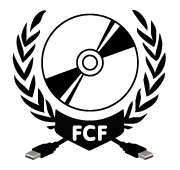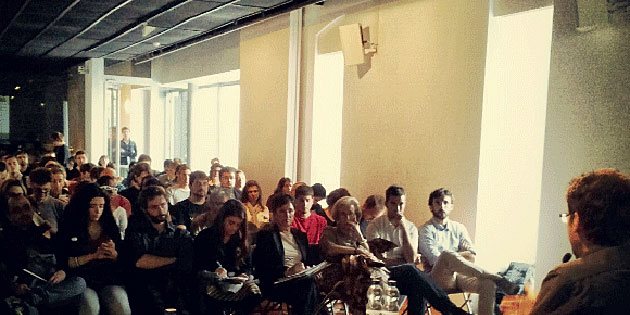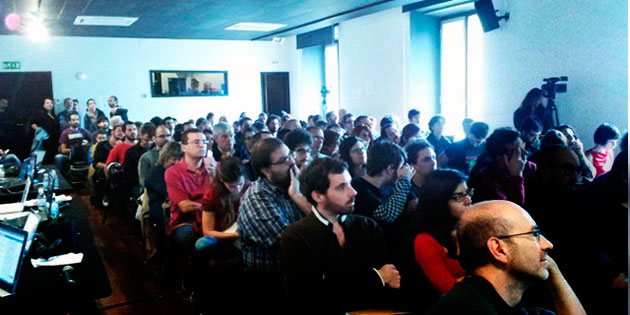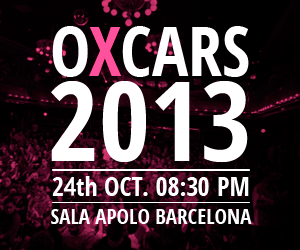FCForum 2013
Once again this year we gather at the FCForum in Barcelona, ready to analyse the advances of the past twelve months and consider the future outlook in the struggle for democracy in the digital era, free culture and net neutrality.
For several years at the FCForum we’ve worked tirelessly around the tools and problems of network democracy.
Since the emergence of Web 2.0, user-generated content has gone from being an interesting social experiment to the digital reality that we immerse ourselves in each day. Meanwhile, the content generated by former “big” media outlets makes up less than 5% of Internet traffic in societies such as Spain.
In this context, is there any point continuing to talk about “cultural creators”, a term formerly used in the copyright wars? Is there any point in framing the debate around protecting cultural creators as though they were a tiny elite rather than the overwhelming majority of society?. What cumulative changes is this paradigm shift bringing about?
Year after year, the FCForum serves as a civil society tool, to move forward, analyse and answer these questions, observing practices that actively grapple with them.
In the not too distant future, the majority of the population in the majority of countries in the world will be connected to a global network that develops collaboratively. How can we, as citizens, use the Internet against anti-democratic forms of government and to create fairer forms of organisation? How can we prevent governments from using the Internet against democracy with the aid of the technology and training provided by certain big corporations?
The true significance of recent civil society struggles for free culture and net neutrality is revealed in this scenario. Net neutrality is essential if the Internet is to continue to be a democratic space, and free culture is a prerequisite for the expansion of this new democratic culture beyond the Internet.
Over the past two years we’ve seen citizen-initiated democratic revolutions advance and develop beyond this geographic context, using the Internet to structure new ways to fight for democracy.
Continuing the work carried out at the FCForum in 2011 and 2012 which looked the increasing use of the net as a tool for democratic transformation – this year we will go further into some specific issues, such as the use and misuse of Big Data, electronic voting and electronic money, and how citizens can use them to achieve a society worthy of being called democratic in the twentieth century.
“virtually everyone with a solution to the copyright wars is worried about the income of artists, while I’m worried about the health of the internet…The point is that when we allow the problem to be framed as “How to we get artists paid?” we end up with solutions to my problems, the problems of the 0.0000000000000000001 percent, and we leave behind the problems of the whole wide world.“
Cory Doctorow, writer
Working Areas
1. Sustainable Models for Shared Culture. Case Studies and Policy Issues
Background and origins of the project:
“If Europe wants to remain competitive in this changing global environment, it needs to put in place the right conditions for creativity and innovation to flourish in a new entrepreneurial culture.“
In recent decades, the creative potential that stems from society has proven to be a key resource for innovation and for a more sustainable type of development. These new processes, which have been dubbed “social creativity”, are turning out to be an unlimited source of innovation for social and economic aims. New cooperative and participatory practices have led to the emergence of new economic models that challenge the boundaries between what we have traditionally considered to be the public, private and common realms.
We can no longer put off re-thinking the economic structures that have produced, financed, and funded culture up until now. Many of the old models are now anachronistic and detrimental to civil society. This discussion aims to promote innovative strategies that can defend and expand the sphere in which human creativity and knowledge can prosper freely and sustainably.
On one hand, this panel will discuss the ways in which thriving new cultural models are allowing sustainable ventures to spring up and flourish in today’s context, while respecting society’s right to access culture and knowledge. And secondly, it will explore the increasing repression of this expansion by lobbies and governments (by looking at the cases of Aaron Swartz, Edward Snowden, and others).
- Presentation of the results of the Creativity: Innovative Models of Production and Access research project. Each of its four sections – Free Culture Entrepreneurs, Crowdfunding, Memory Institutions (museums and archives) and Spaces for Free Culture – contains specific recommendations for legislative and other changes. Based on the “Charter for Innovation, Creativity and Access to Knowledge” published by the FCForum in 2009 and the “How-To for Sustainable Creativity in the Digital Era” published by the FCForum in 2010, “Creativity: Innovative Models of Production and Access” systematises research on new models of production and access to cultural material. It seeks to strike a new balance between the financial sustainability of the cultural sector and access to knowledge in the creative society, as a way of stimulating creativity at all levels. It encompasses emerging players as well as established institutions. The outcome is published as a “Guide” that is being launched today at the FCForum. Presented by Jaron Rowan from FCForum.
- Presentation of “The tragedy of copyright”, a critical history of the concept of intellectual property, cultural industry crisis and commons-based alternatives.
- The cases of Aaron Swartz and Edward Snowden
2. Data Science. The potential and limits of Big Data
The explosion of social networks has exponentially increased the amount of social data that is generated. This phenomena, which is known as “Big Data”, has sparked the need to store, process, analyse and use all of this information. This new data science offers numerous social, economic and knowledge-based possibilities, but it also poses a series of risks and problems that we must bear in mind as we face this expanding field in the digital era.
- Potential and Limits of Big Data as a means for Social Transformation
- Data Journalism: The status of data journalism in Spain
3. Networked Democracy
For several years, the FCForum has been exhaustively exploring the tools and problems of networked democracy. This year, we will look at how the Internet can be considered to prefigure the “Republic of the 99%” (just as the Republic of Letters prefigured the French Republic), and why it is the best tool for the defense and development of democracy.
Towards an open source currency. The digital divide. The bridges between the Internet and the RealWorld, which we move across every day in the war for the Digital Agenda. Lobby theory and political hegemony. Untangling the Gordian knot: the electronic vote.
Electronic Voting – Opportunities and Pitfalls
Electronic voting is expanding, in terms of both the media used to lodge votes and to count them. It has great potential for overhauling the electoral system, but the euphoria that surrounds these new ways of organising social participation sometimes hides dangers that threaten the guarantees of our democratic rights.
- State of e-voting: current experiences. Opportunities and Pitfalls
- The History of Voting Technology. Different approaches
- Telephone Voting
Electronic Money and Distributed Currency. Strengths and weaknesses
The financial crisis has led to the proliferation of parallel payment systems such as electronic and virtual currencies, which are decentralised and use anonymous transactions, thus minimising the risks of deliberate inflation.
- BitCoin and Alternative Currencies in Spain
- Social Currencies in Catalonia and Specific Software
For further information, see the Program
The FCForum is open to anybody who is interested in participating. It is free, and registration is not required. Everybody can participate, taking into account the different levels of knowledge and skills.









